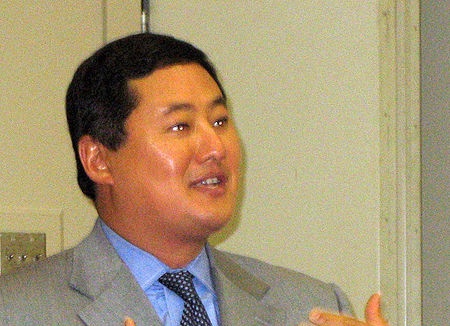What Disaster Movies Can Teach us About Clean Energy

Why does sustainable transit seem like such a far-off dream? Ostensibly obstructed by years of costly R&D, unprecedented political and technological breakthrough, and often some sort of sci-fi revolution, the idea of clean energy has somehow been made into a futuristic fantasy—right alongside time travel. This, it turns out, is a costly and irrational fallacy. As today’s guest and founder of CalCars Felix Kramer explains, the technology is already in place, ready and waiting to be utilized, it’s just a matter of getting around to building a system to use it.
The plug-in Hybrid provides a case-in-point. It is about five times more efficient than gasoline-powered vehicles and can be charged easily, using the production plants we already have, saving us both a lot of money and creating a reliable source of domestic energy.
So, what about the $600 billion that would be required to create a power grid that is clean and powerful enough to make the transition to electric worthwhile? It’s a daunting figure, but it’s the equivalent to the amount we spend importing oil annually, a habit we could finally break.
As Kramer explains, the path to a more responsible and affordable mode of transportation contains few technological hurdles—it’s just a matter of seeing the promise in today, a point that is being woefully forgotten through the dispiriting implication that we need to wait for a mysterious innovation before clean energy can become feasible. Perhaps, Kramer suggests, we can look to disaster movies, where humanity often heroically unites in the face of looming asteroids and aliens, for a more accurate model of what the global attitude toward sustainable mobility should be.
This interview is part of Big Think’s second week of the series, The Future in Motion, where every Wednesday we will release new interviews with people who are changing the way we get from here to there- from entrepreneurs to policy makers.
The series will also highlight the exciting research and insights from the following luminaries:
Richard F. Schaden—Aeronautical engineer, founder of Beyond
The Edge and founder of the global aviation law firm, Schaden,
Zatzman, Lampert, and McClune.
· February 24: Felix Kramer—Founder of the non-profit, California Cars
Initiative. Leads a team of entrepreneurs, environmentalists,
engineers that focuses on developing “plug-in hybrid” technologies.
· March 3: Burt Rutan—Aerospace Engineer and founder of the Rutan
Aircraft Factory and Scaled Composites, two companies which have
developed and flight-tested more new types of aircraft than the rest
of the US industry combined. Rutan was the recipient of the Ansari
X-Prize and inventor of aircrafts including the Voyager, the Virgin
Atlantic GlobalFlyer, SpaceShipOne, and VariEze.
· March 10: William J. Mitchell—Director of MIT’s Design Laboratory
and the research group, “Smart Cities,” which explores the new forms
and functions of cities in the digital electronic era, and suggests
design and planning directions for the future.
· March 10: Ryan Chin, Researcher in MIT’s “Smart Cities” research
group, and is working to develop “the car of the future,” a stackable,
electric, shared two-passenger city vehicle that rethinks urban
mobility.
· March 17: Geoffe Wardle, Director, Advanced Mobility Research, Art
Center College of Design.
· March 24: Nathan Lewis, Professor of Chemistry, at the California
Institute of Technology.
· March 31: Joseph Sussman—Professor of Civil and Environmental
Engineering at MIT. Specializing in “Complex, Large-Scale,
Interconnected, Open, Sociotechnical’ (CLIOS) strategic
transportation systems.
· March 31: Douglas Malewicki, Aerospace engineer and inventor of
the SkyTran, a Personal Rapid Transit system that uses magnetic
levitation tracks to achieve the equivalent of over 200 miles per
gallon fuel economy at 100 miles per hour or faster.
· April 7: Peter H. Diamandis, Chairman and CEO of the X PRIZE
Foundation, which promotes the formation of space tourism and other
major milestones and the co-Founder of Space Adventures.
· April 7: Michael Schrage– Research fellow with the Sloan School
of Management’s Center for Digital Business and a visiting fellow at
Imperial College’s [London] ‘Innovation and Entrepreneurship’ program.
Research focuses on innovation risk management and the role of
collaborative tools and technologies in enabling innovation.





